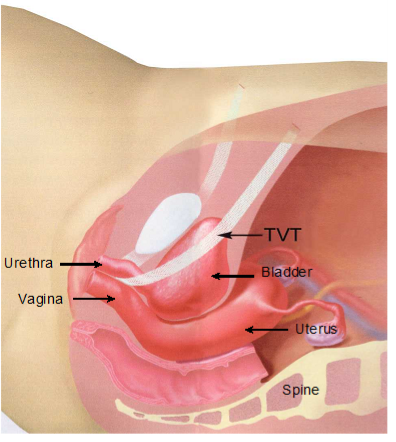TVT Sling is an operation to treat stress urinary incontinence. Stress incontinence is leakage of urine that occurs with activities which cause an increase in abdominal pressure such as coughing, sneezing, jumping, lifting, exercising and in some cases walking.This leakage occurs because the muscles at the bladder neck have lost their supports and strength. As a valve mechanism, the urethra (waterpipe) no longer stays closed when extra pressure is put on the bladder.
How Is It Done?
TVT sling is a minimally-invasive operation requiring three small incisions to insert and position the tape. A 1 cm cut is made on either side of the lower abdomen (tummy) with a 3 cm incision in the vagina to allow the tape to be put in place.Women are usually in hospital for one night following this type of surgery.

